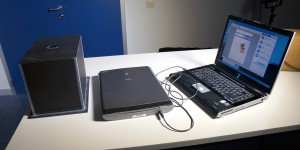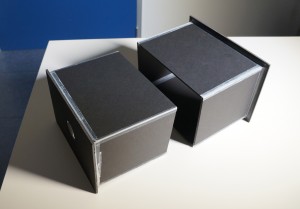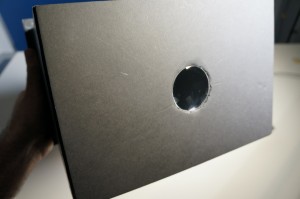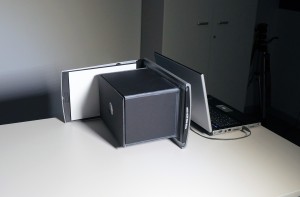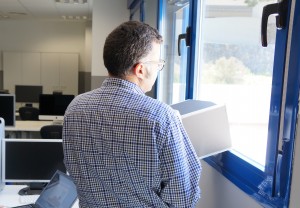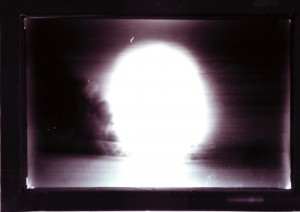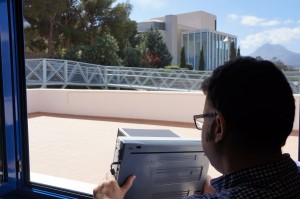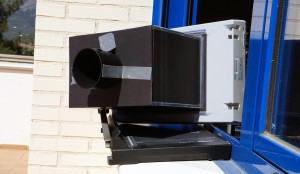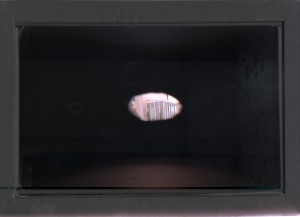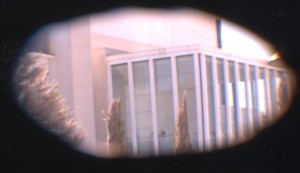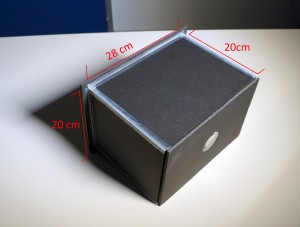
We have built a camera obscura of black foam core cardboard with a base of 20 cm x 28 cm and a height according to the focal length of the lens, 20 cm.
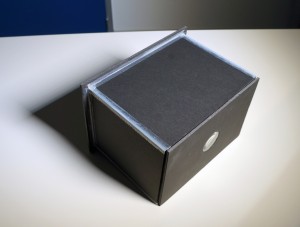
So the height of the camera obscura must be 200 mm = 20 cm. When the sling part is closed, the lens will be focused to the infinity.
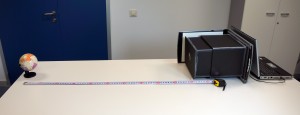
The scanner + camera obscura does not give any visual reference to focus the object, so we have to apply the formulas you can find in the paper: «How to calculate the focusing distance».
How to calculate the focusing distance
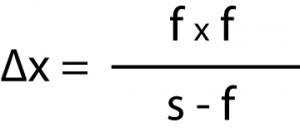
This is the formula, where f = focal length, s = the distance from lens to the object (focusing plane) and Δx = the sliding distance.
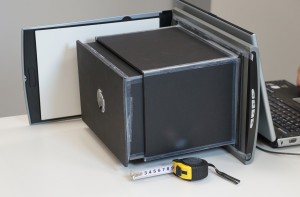
If our globe sphere is placed 100 cm to the scanner and the focal length is 200 mm = 20cm, the result is 20 x 20 / 100 – 20 = 5 cm. The sliding distance is 5 cm.
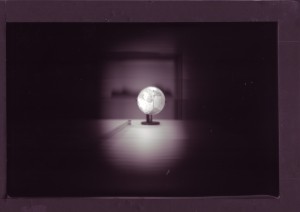
With a Canonscan LiDE 35 scanner we got this image (a bright, sharp enough, white and black image).The scanner specifications are:
Scanning Element: Contact Image Sensor (CIS)
Light Source: Three-colour RGB LEDs.
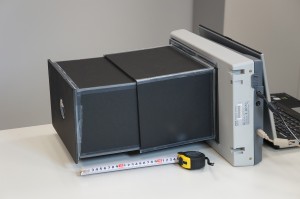
Now, we are going to use the formula the other way round. We place the sliding part at 15 cm from the scanner and…
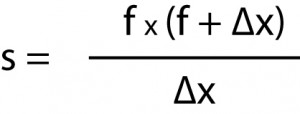
we apply this formula, where f= focal length= 200mm = 20 cm, and Δx (the sliding distance)= 15 cm. Then, 20 (20 + 15) / 15 = 46,666 cm. So the globe sphere has to be placed 46,6 cm from the scanner.
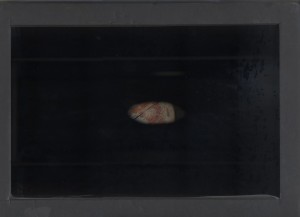
With an Epson Perfection 1650 scanner we got this image (a dark but sharp colour image). The scanner specifications are:
Photoelectric device: Colour CCD line sensor
Light source: White cold cathode fluorescent lamp
Some further information:

